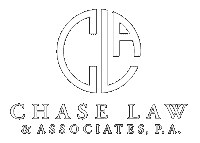Force Majeure Claims and Defenses in the COVID-19 Era
Does Force Majeure Excuse Performance of Contractual Obligations in the COVID-19 Era?
Courts analyze this question through the lens of force majeure. “Force majeure” is a French phrase which means “superior force.” In American jurisprudence, force majeure may excuse or suspend contract rights and obligations upon a circumstance outside the reasonable control of a party, including acts of God, acts of war, civil commotion, fire or any other casualty, governmental action, strikes, lockouts or other similar events. ARHC NVWEFL01, LLC v. Chatsworth at Wellington Green, LLC, 2019 WL 4694146, at *3 (S.D. Fla. Feb. 5, 2019).
An act of God is “an overwhelming, unpreventable event caused exclusively by forces of nature, such as an earthquake, flood, or tornado.” Black’s Law Dictionary (9th ed. 2009).
Force majeure is not merely a recession, an economic downturn or an inability to obtain funds or financing. See e.g., Hampton Island, LLC v. HAOP, LLC, 306 Ga.App. 542, 547-48 (Ga. Ct. App. 2010) (holding that “the fact that one is unable to perform a contract because of his inability to obtain money, whether due to his poverty, a financial panic, or failure of a third party…will not ordinarily excuse nonperformance…”).
The first step in analyzing force majeure is to determine whether the contract expressly contains a force majeure clause. See S&B/BIBB Hines PB 3 Joint Venture v. Progress Energy Florida, Inc., 365 Fed. Appx. 202, 205 (11th Cir. 2010). If force majeure is set forth in the written contract itself, courts interpret the contract language its usual and customary way and decide whether the clause applies to the facts presented. If the contract does not contain a force majeure clause, force majeure arises as an affirmative defense in a breach of contract claim and the party raising the affirmative defense bears the burden of proof by a preponderance of the evidence. In re Flying Cow Ranch HC, LLC, 2018 WL 7500475, at *2 (Bankr. S.D. Fla. June 22, 2018) (citing U.S. v. Custom Climate Control, Inc., 2007 WL 4557234, at *9 (M.D. Fla. Dec. 20, 2007)).
The COVID-19 pandemic is probably an “overwhelming, unpreventable event,” although its acute commercial impact is generally financial in nature. Courts are analyzing force majeure arguments on a case-by-case basis in this fast-developing situation while considering broader policy principles. A meaningful line must be drawn because courts cannot allow every contract to be automatically voided in light of the virus. An overly permissive approach to force majeure claims could further undermine economic confidence, result in legal uncertainty and exacerbate an already precarious situation.
Local, state and federal legislatures and other government instrumentalities will likely step in with a patchwork of enforceable and advisory guidelines, regulations or laws for treatment of legal rights and obligations as the crisis unfolds. Although lawsuits can be e-filed, courthouses across the country are presently closed or operating with reduced staffing for civil matters exclusive of injunctions and other emergency matters.
We recommend that you consult with an experienced and persuasive attorney to determine your rights and obligations at this stressful time with so much at stake. Attorneys at Chase Law specialize in contracts and commercial litigation matters in Florida, California, New York, Texas, Washington, DC, Maryland and Massachusetts. Feel free to call us at (305) 402-9800 and we will be happy to help.

